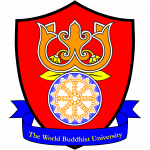Living in Bhutan
Who wouldn’t want to study abroad in The Land of the Thunder Dragon? - A mysterious and elusive country for the Western world! The secret to a successful study abroad experience begins with research; it begins here:
Language:
“Dzongkha” is the national language of Bhutan. It is a South Tibetan language that is also somewhat similar to Sikkimese. However, international students who are looking to go abroad to Bhutan should not worry too much about the language barrier. The majority of Bhutanese are not only conversant in English, but all courses are taught in English as well.
Housing:
Most students studying in Bhutan prefer to stay in dormitories. Both Royal Thimphu College and Sherubtse College encourage all new students to live on campus as a good number of faculty and staff live on campus as well, which nurtures a safe, healthy and academically interactive campus life.
Academic Life:
The colleges’ academic year is based on a two semester system; the academic year begins in the first week of August and ends in late June or early July. Colleges and schools in Bhutan have short summer breaks (2-3 weeks) and a long winter break (2 – 2 ½ months). Most colleges are not only equipped with modern facilities designed to suit the needs of students, but they also have strong faculty advising, and normally encourage small-group discussions and class participation. For example:
“The pedagogy at Royal Thimphu College includes variety of methods: presentations, active participation in class, discussions and debates, case studies, field visits, guest lecturers and writing assignments. These methods help the students develop life skills such as the ability to learn independently and communicate effectively. This in turn prepares them for the world of work. More than 50% of student assessment is through course work.”
Student Life:
Colleges like Royal Thimphu College and Sherubtse College are committed to giving students the opportunity and freedom for the fullest possible development as a whole person: academically, emotionally, socially, morally and physically. Colleges also provide students an active life both in and outside of classrooms – besides the enriching academic life, students are kept busy with extra-curricular activities such as intramurals, inter-school sports competitions, debates, hiking, music, dancing, and acting programs.Britain’s academic excellence comes at a price: The average tuition fees here are higher than anywhere else in Europe. At the same time, the cost of living are also higher than the average in Western Europe.
In this context, Brexit has surprisingly been a beneficial development for non-European international students: The British pound (GBP) has lost much of its value against other currencies, meaning that the tuition fees, which are charged in pounds, have become more affordable for students from abroad.
However, this is unlikely to be a long-term effect; although financial market analysts expect the pound to give in further, universities will probably adjust their tuition fees for the coming academic years.
Social Life and Student Culture
There are literally hundreds of activities to keep you busy outside the classroom. Your study abroad program with us itself will come in a package which will include numerous sightseeing activities to ensure that you see the best of everything that the country has to offer. Your stay here will be an adventurous one, ranging all the way from experiencing social work such as helping build houses in the villages, teaching in schools, going on absolutely breathtaking hikes, or just experiencing the slow and relaxing Bhutanese way of living, to enjoying the assortment of food (Bhutanese, India, Mexican, Korean, Chinese, Thai, etc) and the exciting nightlife for you to explore in Thimphu City.















